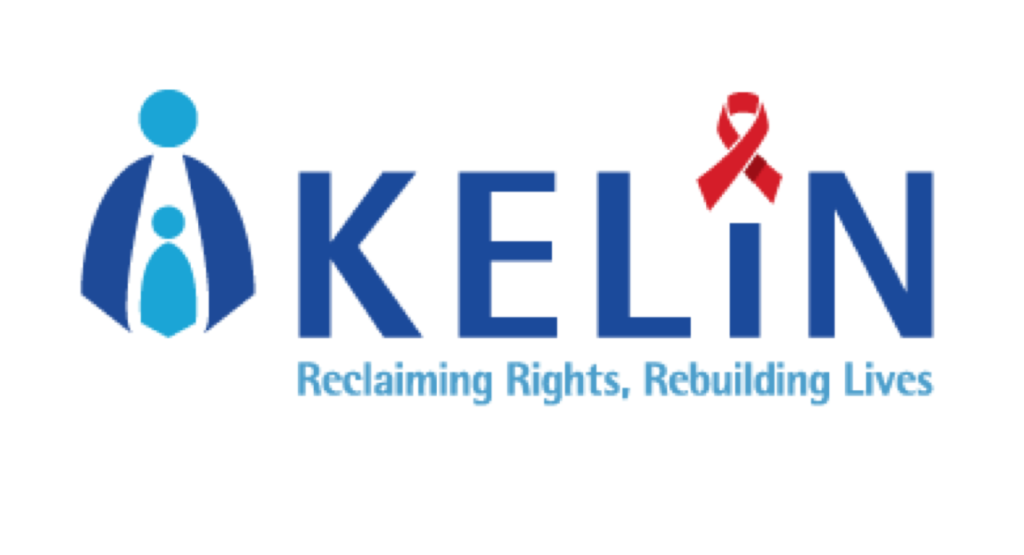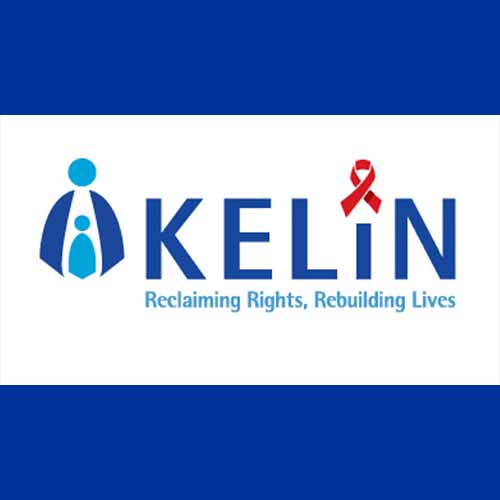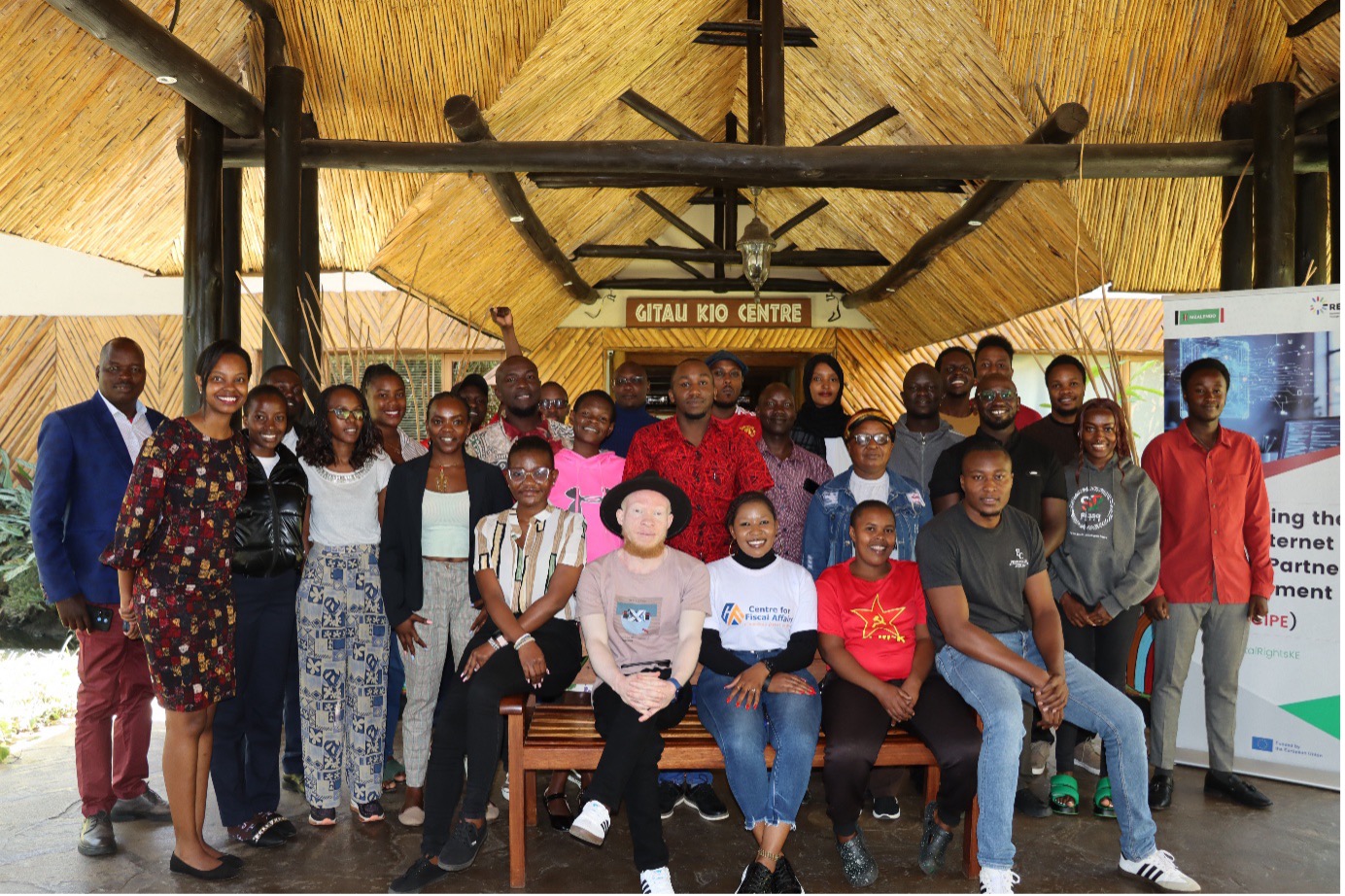Olendo Obondo and Timothy Wafula[1]
In November 2022, the Kenya Legal and Ethical Issues Network for HIV & AIDS (KELIN) held two important consultations with young people in Kenya and human rights lawyers in Africa. This was in response to a call for input by the UN Special Rapporteur on the Right to Health (SR right to health) for a thematic report on Digital innovation, technologies and the right to health. The two consultations resulted in KELIN, in collaboration with organizations working with young people in Kenya[2] as well as with organizations working with human rights lawyers in Africa[3] making two submissions[4] to the SR right to health to inform the report. The SR has now concluded the report (A/HRC/53/65: Digital innovation, technologies and the right to health | OHCHR) and tabled the same at the Human Rights Council at its fifty-third session.
This brief article presents a set of recommendations that were made by the young people and human rights lawyers to help shape the future of digital health, focusing on digital literacy, governance frameworks, development principles, and privacy considerations.
Digital Health Technologies (DHTs) have the potential to revolutionize healthcare, as the world is increasingly connected and tech-savvy. However, to ensure the responsible and beneficial use of these technologies, it is essential for governments, health technology developers, and global health stakeholders to collaborate and implement appropriate measures. In order to ensure the responsible and equitable development of digital health technologies (DHTs), several recommendations have been put forth to guide governments, key stakeholders, and health technology developers. These recommendations aim to foster collaboration, safeguard user rights, and promote accessibility and inclusivity in the digital health landscape.
A. Recommendations from Young People:
Build Digital Literacy: Governments, in partnership with health technology developers and global health stakeholders, should prioritize the development of digital literacy programs for young people. These programs should not only enhance their access to and utilization of DHTs but also equip them with the necessary skills to manage online risks. By promoting digital literacy, we empower young people to make informed decisions and take control of their health and well-being.
Develop Governance Frameworks: To protect young people’s data privacy while maximizing the benefits of digital health, it is crucial to establish national, regional, and global governance frameworks. These frameworks should outline robust safeguards and regulations, ensuring that young people’s data is adequately protected. Such measures will build trust and confidence in DHTs, allowing young people to leverage these technologies for improved healthcare outcomes.
Strengthen Development Principles: Governments should align their efforts with the World Health Organization’s principles outlined in the Global Strategy on Digital Health (2020-2025). These principles include transparency, accessibility, scalability, replicability, interoperability, privacy, security, and confidentiality. Adhering to these principles will foster the development of ethical and effective digital health innovations that cater specifically to young people’s needs.
Establish Comprehensive Digital Health Strategies: Governments, in collaboration with health technology developers and global health stakeholders, should develop comprehensive digital health strategies. These strategies should regulate the processing of personal data, ensure coordination among stakeholders, and foster harmonization of digital health technologies. By establishing clear guidelines and strategies, governments can promote the responsible implementation of DHTs for young people’s benefit.
Involve Young People in Design and Implementation: Digital Health Developers should actively engage young people in the design and implementation of digital health technologies. By involving them from the outset, developers can gain valuable insights into their unique requirements, preferences, and challenges. This participatory approach will enhance the accessibility and utilization of digital health services, ultimately improving health outcomes for young people.
Prioritize Young People’s Rights and Well-being: Digital Health Developers must prioritize the rights and well-being of young people over private and commercial interests. Designing technologies that consider their specific needs, privacy concerns, and ethical considerations is essential. Developers should conduct regular assessments to ensure their innovations align with the best interests of young people, promoting their well-being and safeguarding their rights.
Uphold Privacy and Information Sharing: Respecting young people’s right to privacy is paramount in the digital health landscape. Digital health developers should establish robust mechanisms to protect personal data, ensuring confidentiality and security. At the same time, they should uphold young people’s right to information sharing and access, empowering them with the knowledge and control over their health data.
B. Recommendation from human rights lawyers from Africa:
Comprehensive Digital Health Policies and Strategies: These policies should be supported by robust digital regulatory frameworks that prioritize data protection and ensure the privacy of individuals. By working together, governments can create a secure and standardized environment for digital health technologies to flourish.
Digital Health Tech Regulations: Governments need to implement laws and regulations that enable impact evaluations of digital health technologies. These evaluations should encompass various aspects such as privacy, safety, ethics, and human rights. By conducting thorough assessments, governments can safeguard the well-being of digital health users and ensure that these technologies adhere to ethical principles.
Establishment of an Ethical framework for DHTs: Key stakeholders in global health, including policymakers and organizations, should establish an ethical framework for DHTs. This framework should focus on advancing individual rights, minimizing harm, and regulating the actions of DHT developers. It is crucial to adopt and implement human rights standards and norms that encompass ethical principles into law, ensuring that the development and deployment of digital health technologies are guided by responsible practices.
Exploration of Opportunities in DHTs: Regional governments should explore opportunities to leverage the scalability and integration of digital health. By doing so, they can ensure that health workers and individuals from all backgrounds have access to innovative health solutions. Additionally, regional governments should address the intrinsic and extrinsic needs of health systems, tailoring conditions that support the implementation of new digital initiatives.
Collaboration and Strategic partnering: National governments should collaborate with private sector developers and development partners to enhance the technological infrastructure necessary for digital health. This includes investing significantly in increasing network bandwidth and reliability, improving broadband connectivity, enhancing digital literacy, and implementing robust systems for data safety and reliable backups. These efforts will contribute to a more resilient and accessible digital health ecosystem.
Community involvement in establishing proper and inclusive DHTs: DHT developers must proactively consider the potential for prejudice in their applications. By including communities from diverse racial, gender, and socioeconomic backgrounds in all stages of the design process, developers can ensure that their innovations are unbiased and equitable.
Thorough Research and Development for technical advancements in DHTs: Health technology developers should prioritize the development of innovations that are effective, ethical, accessible, and usable for all people. Throughout the development process, privacy impacts and risk benefit assessments should be thoroughly considered to mitigate potential harms and maximize the benefits of health innovations.
Does the SR right to health agree with these recommendations?
In the SR report A/HRC/53/65: Digital innovation, technologies and the right to health, which is based on an analysis of the submissions received from different stakeholders and experts and the relevant literature on digital innovation, technologies and the right to health, the rapporteur acknowledges that the growth of technological innovation is redefining the right to health. And that in a number of countries, it has strengthened the ability of Governments to respect, protect and fulfil this fundamental human right by ensuring that all health facilities, goods and services are available, accessible, acceptable and of good quality.
In terms of the above recommendations from young people and human rights lawyers, the special rapporteur agrees with a number of recommendations as follows, among others:
- On digital health literacy, the special rapporteur agrees that a concerted global effort must be undertaken to encourage and invest in improving literacy regarding the data pipeline, data systems, data curation, data tools and data protections and safety. Further, that in order to facilitate meaningful public participation, States, civil society, business and other relevant actors will need to invest in and support digital literacy and education, as well as human rights approaches to digital innovation and technologies.
- On data protection and privacy, the special rapporteur dedicated a section to address digital innovation, technologies and privacy noting that the rise of digital health innovation and technologies pose unprecedented risks to the right to be free from arbitrary or unlawful interference with one’s privacy.
- On developing governance frameworks, the SR agrees that rapid growth in digital technologies demand updated and strengthened governance to ensure Right to health in the Digital age is attained. And that States must be proactive in assessing the evidence-based information, innovations and technologies in health and ensure adequate regulatory frameworks are in place nationwide.
- On collaboration and strategic planning, the SR notes that further coordinated action is needed to progress and operationalize the right to health in the digital age.
- On public participation, collaboration, and youth involvement, the SR states that a robust regulation at global, regional and local levels will be needed for the protection of personalized data and more inclusive and participatory approaches to digital health governance. Collaboration by stakeholders is crucial to facilitate meaningful public participation.
- On accountability and implementing the human rights-based approaches and WHO’s Digital Health governing principles, the SR opines that States must embed human rights principles of equality, non-discrimination, participation, transparency and accountability in implementation to meet their obligations and fulfil the right to health in relation to digital innovation and tech.
In conclusion, by implementing these recommendations, governments, key stakeholders, and health technology developers can collectively contribute to the responsible and inclusive growth of digital health technologies, ultimately improving healthcare outcomes and promoting equality in access to care; building a Digital Health Ecosystem that paves the way for a brighter and healthier future for all including young people.
[1] Obondo Olendo is the Programme Officer while Timothy Wafula is the Programme Manager of the the HIV, TB and Key and Affected Populations Thematic Area at KELIN.
[2] Specifically Positive Young Women Voices (PYWV), Ringa Women Fighting Aids Group, Y+ Kenya, Ambassador for Youth and Adolescent Rep Health Programme (AYARHEP), Jinsiangu and Youth Advisory Council.
[3] Specifically CIPIT- Strathmore (Kenya), ARASA (South Africa), Pan African Treatment Access Movement (PATAM) (Zimbabwe), NEXTGEN Lawyers (Kenya), Uganda Network of Law, Ethics and HIV/AIDS (UGANET) (Uganda), EANNASO (East Africa), TTCN (Tanzania) and Tanzania Women Lawyers Association (TALWA) (Tanzania).
[4] See link to submissions here: https://www.kelinkenya.org/wp-content/uploads/2023/06/KELIN-_-Young-People-Submissions-to-the-UN-SR-on-Right-to-Health-Digital-Innovation-Technologies-and-Right-to-Health-.pdf


